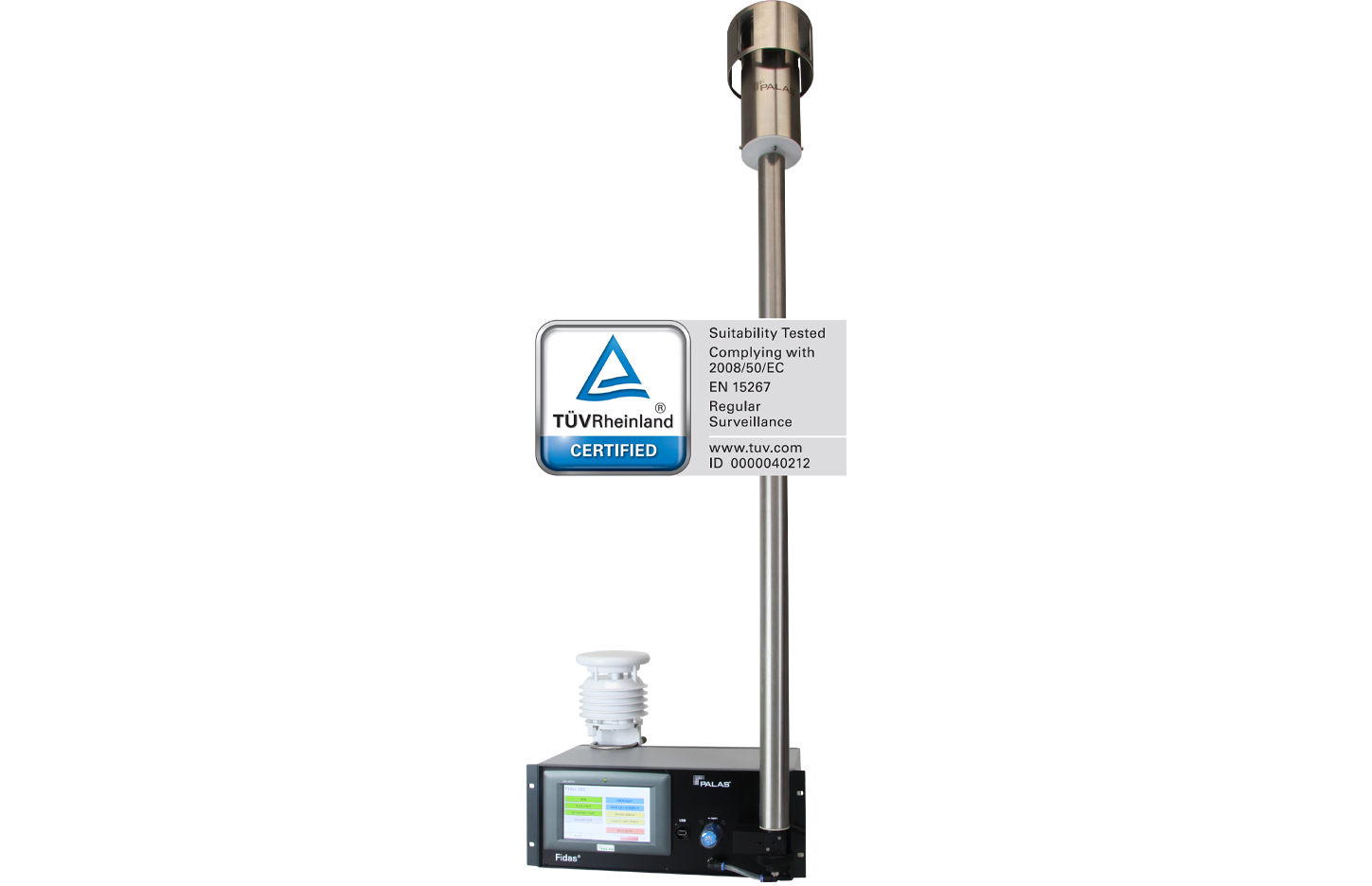Karlsruhe Institute of Technology, located in Germany, was founded in 1825 and is the oldest technological university in Germany. Its scientific research fields focus on climate, environment, and new energy, etc. The university conducted a study on the impact of fine particles on the deglaciation of glacier in Greenland. The purpose was to verify whether climate changes around Greenland, such as sandstorms, are one of the factors contributing to global warming. To this end, researchers started from the subdivision proposition, focusing on whether the sedimentary particles in the climate accelerated the rate of glacier deglaciation. The fine dust monitor system Fidas® introduced by Palas® can operate stably and efficiently under extreme environmental conditions, providing an accurate database for this research.
Palas® Provides Solutions for Ecological Research
Palas® gave not only technical support for the research, but also scientific insights. In addition to providing fine dust monitor system Fidas® for researchers, Palas® Managing Director at that time, Mr. Leander Mölter and German ambassador to Denmark, Mr. Christoph Jessen also went to the research station of the Danish Meteorological Institute
in Kelly Ville close to Kangerlussuaq. The project is aimed on conducting long-term measurements over some weeks and on measuring the normal background concentration in dependence of particle size and quantity. That way, the deviance to a higher local dust appearance, caused by sandstorms in the fjord, shall be determined. Hence resulting effects on the glacier melt shall be documented.
Mr. Leander Mölter has made a reasonable explanation for this hypothesis, the light adsorption of particles bigger than 10 μm which are carried on the glaciers by frequent sandstorms leads to a faster deglaciation. Mr. Mölter and his colleagues installed a series of measuring devices in the research center, among which the Fidas® could show that the dust appearance can be determined reliably and in detail. These findings shall be integrated in a research project of the scientists from Karlsruhe.
 Palas® Managing Director Leander Mölter explains the Fidas® to the German ambassador Christoph Jessen
Palas® Managing Director Leander Mölter explains the Fidas® to the German ambassador Christoph Jessen
Stable Operation under Extremely Low Temperature
Fidas® has outstanding advantages in measuring capabilities. In this research from Karlsruhe University, the particle surface and the concentration are the decisive parameters to draw conclusions on the deglaciation of the glaciers by particles. With Fidas®, it is possible to determine not only the emission values PM1, PM2.5 and PM10, but also the surface distribution as well as the exact particle size and quantity. In Greenland, Palas® combined Fidas® with a specially modified sampling head Sigma-2 as active collector. Furthermore, it is possible to collect other relevant data as temperature, relative humidity, barometric pressure, wind velocity and wind direction.
In addition, Fidas® can operate stably at extremely low temperatures. In Greenland, temperatures of down to -45°C are possible, also variations in temperatures of 40°C within a few days. In the research, the welas® aerosol sensor used can be utilized in temperatures between -90°C and +70°C. Considering that the extreme environment around the location of Fidas®, it could be impossible for researchers to access the instrument all the time. Therefore, Palas® worked on the system’s power supply by a solar cell. With it, Fidas® could be operated self-sustaining at remote places.
 Icebergs in Greenland
Icebergs in Greenland
Innovative Monitor System to Protect the Environment
With the currently used measurement methods, with which the emission values are measured gravimetrically, it can only be evaluated, how high the total mass concentration was over a determined period of time. However, the Fidas® system carries real-time measurements into effect, with which the particle number and size can be determined with a high time-resolution. Thus, faster and more exact data bases are created. Mr. Leander Mölter pointed out that environmental measurement is the central topic at Palas®, therefore, a more advanced fine dust monitor system, Fidas® 200, has been launched, which is available now in the Chinese market. According to the latest EN standard, which has been ratified by the European Commission, Fidas® 200 has EN 16450 approved certification and can measure PM2.5 and PM10 simultaneously.

EN 15267/16450 approved fine dust monitor system Fidas® 200
Palas® China will arrange a series of online webinars both in English and Chinese for Fidas®, AQ Guard air quality detector, U-SMPS scanning electric mobility particle size spectrometer, HMT testing system, and MFP series filter material filtration efficiency tester, PMFT mask filtration efficiency tester, Promo® and Aerosol Generator and Dilution system and many other solutions. If interested in the webinars for our products, you are more than welcome to register on our official website and get the latest webinar plan!
Register online now to participate in our webinars if interested
| Date | Day of week | Time | Topic |
| 2021/3/5 | Friday | 14:00 – 15:30 | MFP Webinar “Advanced” |
| 2021/3/12 | Friday | 14:00 – 15:30 | SMPS Webinar “Basics” |
| 2021/3/16 | Tuesday | 15:00-16:30 | Fidas® & AQ Guard & Cloud Droplet Analyst & Promo® 2000 & SMPS Application |
| 2021/3/19 | Friday | 14:00 – 15:30 | PMFT Webinar “Basics” |
| 2021/3/26 | Friday | 14:00 – 15:30 | Fidas® & AQ Guard Webinar “Basics” |
| 2021/4/2 | Friday | 14:00 – 15:30 | Promo® & Aerosol Generator & Dilution system Webinar “Basics” |
| 2021/4/9 | Friday | 14:00 – 15:30 | SMPS Webinar “Basics” |
| 2021/4/16 | Friday | 14:00 – 15:30 | MFP Webinar “Basics” |
| 2021/4/23 | Friday | 14:00 – 15:30 | Fidas® & AQ Guard Webinar “Basics” |
| 2021/4/30 | Friday | 14:00 – 15:30 | PMFT Webinar “Basics” |
| 2021/5/7 | Friday | 14:00 – 15:30 | HMT 1000 Webinar “Basics” |

